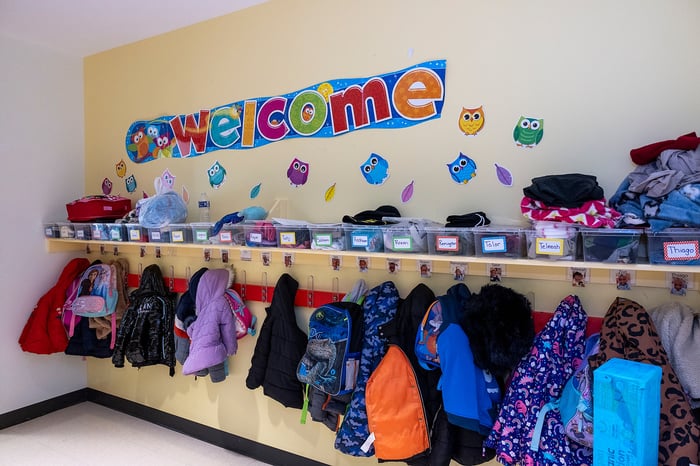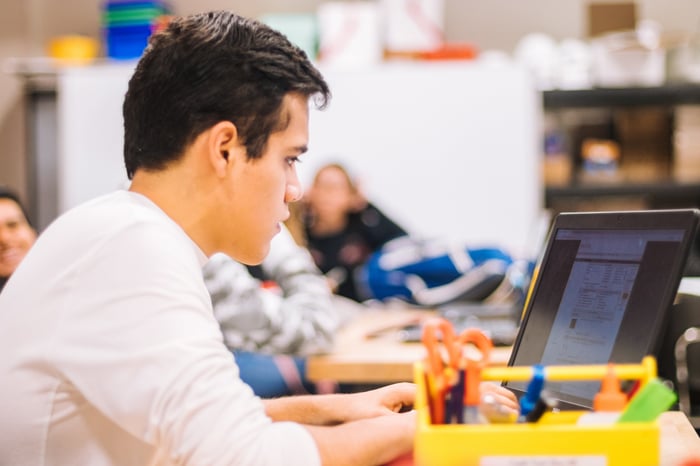From Belief to Practice: 5 Mindsets That Make Inclusion Work
Administrators • 5 min read • Dec 16, 2024 9:21:22 AM • Written by: Sarah Sandelius

Mindsets matter because they shape everything we do in schools. When a teacher believes "all students can learn," they don't just say it – they spend extra time planning differentiated lessons, they pursue special education professional development, and they persistently try new strategies when initial approaches don't work. When a school team believes "inclusion benefits everyone," they don't just assign students to general education classrooms – they transform their teaching practices, restructure their planning time, and reimagine what's possible for all learners.
The challenge for school leaders is clear: technical changes to special education programs, while important, aren't enough. True transformation requires shifting how educators think about students with disabilities, about their own capabilities, and about what inclusive education really means. Research shows that schools making the most progress in inclusive practices have one thing in common – they've intentionally developed shared mindsets that drive their daily actions.
As school leaders work to strengthen special education and create truly inclusive classrooms, these mindsets serve as the foundation for lasting change. The five essential mindsets below, aligned with The Ability Challenge's (ABC) THRIVE Framework for Quality Special Education, aren't just nice ideas – they're the beliefs that research shows lead to measurable improvements in how schools serve diverse learners.

1. All Students Can Learn and Grow
At the core of inclusive education lies the unwavering belief that every student with disabilities can succeed. When educators implement effective strategies to meet the needs of diverse learners, they:
- Design specially designed instruction for competence, providing scaffolds to meet individual learning needs
- Celebrate progress in inclusive classrooms, viewing challenges as opportunities
- Resist deficit thinking, focusing on strengths and potential
- Build confidence in teaching diverse learners effectively
This mindset challenges educators to reframe their approach to special education, fostering a classroom culture where every learner feels capable and valued.

2. Serving Exceptional Learners is a Collective Responsibility
Inclusive education is not solely the responsibility of special educators—it's a team effort requiring ongoing special education professional development. This belief transforms school communities by:
- Promoting shared ownership of all students' success through collaborative teaching
- Facilitating co-planning between general and special educators
- Implementing systems-level practices that bridge general and special education
- Building professional learning communities focused on inclusive teaching strategies
When the entire school embraces this mindset, artificial divides fade, making space for authentic inclusion.

3. Inclusive School Environments Benefit All Students
Creating inclusive classrooms enhances learning experiences for everyone, not just students with disabilities. This belief drives evidence-based practices such as:
- Implementing Universal Design for Learning (UDL) principles
- Using flexible grouping strategies to support diverse learners
- Cultivating inclusive teaching practices that promote belonging
- Highlighting how neurodiversity enriches the school community
By designing schools where inclusion is the norm, educators create environments where all students thrive academically and socially.

4. Parents and Families Want the Best for Their Children
Families are experts on their children; building partnerships is essential for IEP success. This mindset encourages educators to:
- Value family input during IEP meetings and planning
- Presume positive intentions in special education meetings
- Set ambitious goals aligned with present levels of performance
- Leverage family insights to enhance specially designed instruction
Strong family partnerships unlock valuable support that propels student achievement.

5. Engaging with Empathy Has Value
Inclusion requires both effective instruction and strong relationships. Anti-ableist practices and empathy help educators build meaningful connections by:
- Considering multiple perspectives in inclusive settings
- Challenging assumptions about learning differences
- Centering student and family experiences in decision-making
- Maintaining a growth mindset in relationship-building
Taking Action in Your School
These mindsets form the foundation for improving special education in your school. Ready to take action? Here are your next steps:
1. Download ABC's Mindset Reflection Protocol and use it in your next staff meeting
2. Review your school's current inclusive practices and identify growth areas
3. Create an action plan with your team, focusing on one mindset to strengthen
4. Schedule regular check-ins to share success stories and problem-solve together
Encourage your team to reflect on which mindsets resonate with them and share examples of these beliefs in action. Through shared commitment and intentional practice, we can create schools where every student thrives.
Let’s make this holiday season one of reflection, growth, and commitment to building schools where every student thrives.
READY TO GET STARTED?
Let's Work Together!
Sarah Sandelius
Our Latest
Related Articles

September 4, 2024 | Administrators
Strategic Staffing in Special Education: Choosing the Right Model for Success
Discover three innovative special education staffing models to address teacher shortages and create ...

June 15, 2021 | Culture of Inclusion
Recovery Planning with Diverse Learners at the Center
Discover our Two Dynamic Learning Series: Accelerated COVID Recovery and Inclusive Education. Empowe...

August 13, 2024 | Administrators
An Administrator's Essential Guide for Establishing a Culture of Inclusion
Learn how school leaders can foster inclusive education from day one. Practical strategies for admin...

